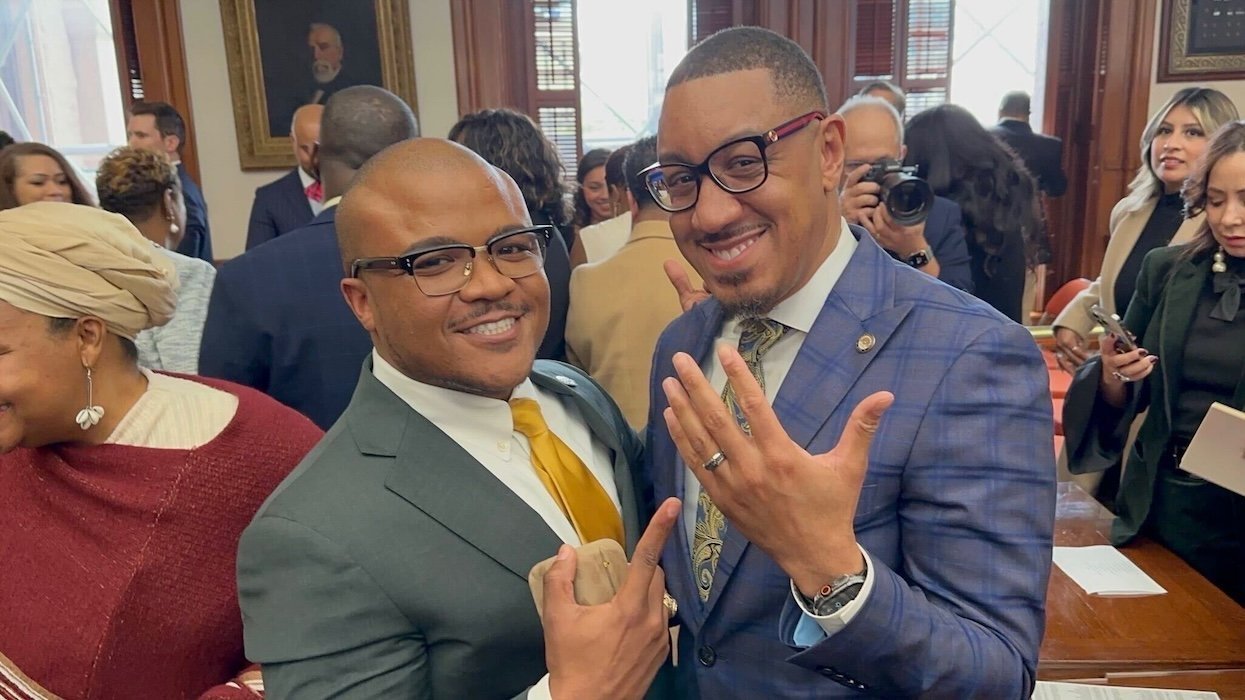Transgender Americans cheered the Pentagon's long-anticipated decision to lift the ban on military service--that is, until they started to read the fine print.
The Defense Department's new direction, led by Secretary Ash Carter, means that openly transgender soldiers will not be discharged for coming out. Transgender soldiers currently enlisted could receive hormone therapy and sex reassignment surgery if deemed medically necessary.
However, as part of what Carter's Pentagon saw as a compromise with conservative critics, transgender people wishing to sign up after the lifting of the ban must prove that they have been stable in their gender identity for 18 months before being medically cleared to serve.
While the ban's fall should be applauded, the waiting period came as a surprise to transgender advocates.
"We believe that 18 months is an unnecessarily excessive wait for young people who want to join," said Sue Fulton, president of SPARTA, an organization for transgender soldiers. "It's not supported by the facts; it doesn't take that long to be 'stable' on hormones or in your gender expression."
The National Center for Transgender Equality overall praised the policy as a "huge step forward," but still called the 18-month waiting period "an unnecessary barrier to getting the qualified people," according to NCTE policy director Harper Jean Tobin.
The wait period also carves out niches for transgender men and women, but leaves the fate of non-binary soldiers foggy.
"In a few areas the military has two sets of standards for men and women--this is straightforward for trans men and women, but doesn't apply neatly to those with other gender identities," Tobin said. "Gender nonconforming or non-binary individuals can serve openly, but currently they will need either to follow service rules for the gender they were assigned at birth, or follow the process for an individual gender transition to be subject to rules for the other binary gender."
So, the Defense Department--the country's largest employer--has taken a huge step forward for gender identity rights, just as long as people fit on the binary.
This thinking already appeared when a draft of a compromise bill over transgender bathroom access leaked shortly before the North Carolina state congress adjourned for the year. In that bill, state legislators suggested allowing transgender people access to bathrooms if they received a "certificate of sex reassignment," which would require a doctor to confirm bottom surgery.
That's the best LGBTs can expect from North Carolina at this point.
The struggle for transgender rights and recognition will be hard. It will require sacrifice--even after transgender people have given everything, even their lives, for those rights. But compromises based on the gender binary are not compromises. They grossly distort how people see gender, how society has constructed gender as an artifice, and how attempts to enforce that artifice only alienate more and more people.
These compromises from the Pentagon and from North Carolina, rather than showing any progress from policymakers, merely delineate how much further leaders have to go in how they understand gender. Transgender people should enjoy their victories, but they can't forget their peers who don't fall on the binary as rights come within reach. All genders are beautiful. All genders support and defend this country.
That's what we need to remind American leaders--or in most cases, teach them for the first time.




















































































